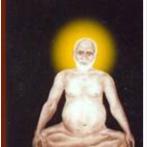SRI GURUBHYO NAMAH SRI PARAMAGURUBHYO NAMAH SRI PARAMESHTHI GURUBHYO NAMAH
SHAANTAA VIMALAA PRAKAASHAA ATMAA GUHAA CHIDYOGAASAYA SRI PARAANANDAADI SADGUROON NAMAAMYAHAM PUNAH PUNAH
The Argalāstotra (“Hymn of the Bolt”) is a series of incantations in the form of a dhāraṇī, a Tantric mantra that first praises a deity and then, in the imperative mode, appeals for assistance.
In this case, the appeal is an invariable refrain: “Give the form, give the victory, give the glory, kill the enemies.” For its raw, incantatory insistence, my translation retains that literal wording, even though the sound is awkward and the meaning obscure. Rūpa means “beauty” as well as “form,” and what the reciter asks is that the Divine Mother reveal her indwelling presence as the beauty of Self-knowledge. HENCE ROOPA REFERS TO SELF KNOWLEDGE
Next the refrain requests the assurance of success in spiritual endeavor, in other words, victory over the deluding power of māyā. With such victory should come glory—a state of spiritual bliss—as well as the destruction of all forces hostile to the sādhaka’s efforts.
Thematically, almost every verse of this anga has its counterpart somewhere in the Devīmāhātmya, and the resemblances are self-evident. The first seven verses address the Devī by familiar names and refer specifically to the major asuras destroyed in the course of the three caritas. A few other points warrant explanation:
The name Aparṇā alludes to a myth in which the Devī took birth as Himavat’s daughter and practiced the austerity of complete fasting in order to win Śiva as a husband. Its literal meaning is “not even having leaves [for food].” Alternatively, Apamā (“without leaves [for clothing]”) suggests the total freedom symbolized by Kālī’s nakedness.
In English we speak of “the long arm of the law,” and it is tempting to regard the Sanskrit dordaṇḍa (“long arm,” from dos, “forearm,” and daṇḍa, “staff’) as a similar metaphor for the Devī’s function as the upholder of dharma.
The “four-armed Devī” no doubt refers to the unmanifest, triguṇā Mahālakṣmī, the supreme Śakti, worshiped alike by the great creator, preserver, and destroyer gods of theistic as well as by Indra, chief of the old Vedic gods. As with the Kavaca, if the reciter is a married woman or a celibate monastic, “wife” may be replaced by either “husband” or “companion.”
The “great hymn of seven hundred verses” is the Devīmāhātmya.




